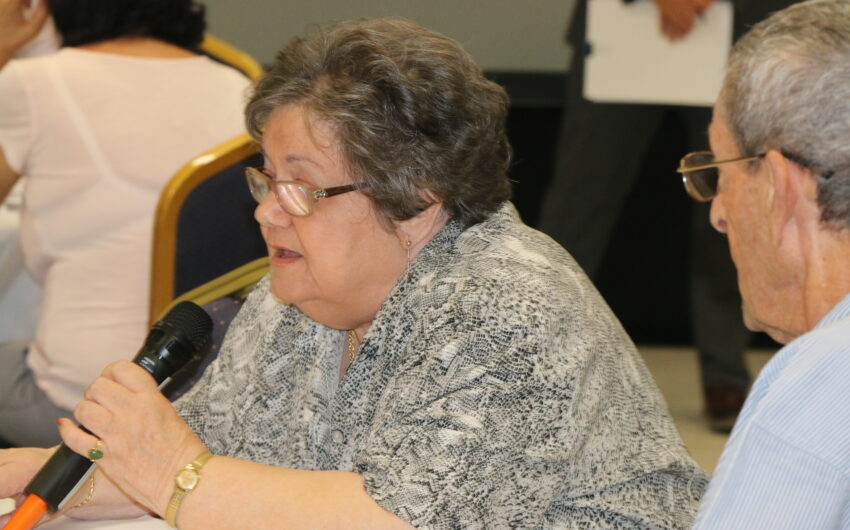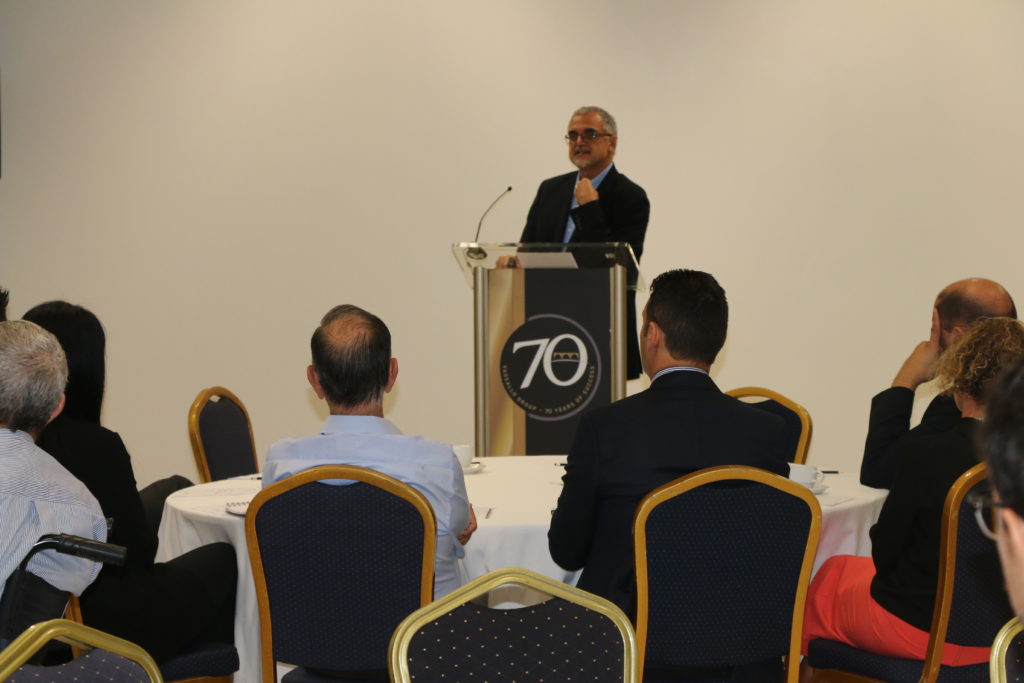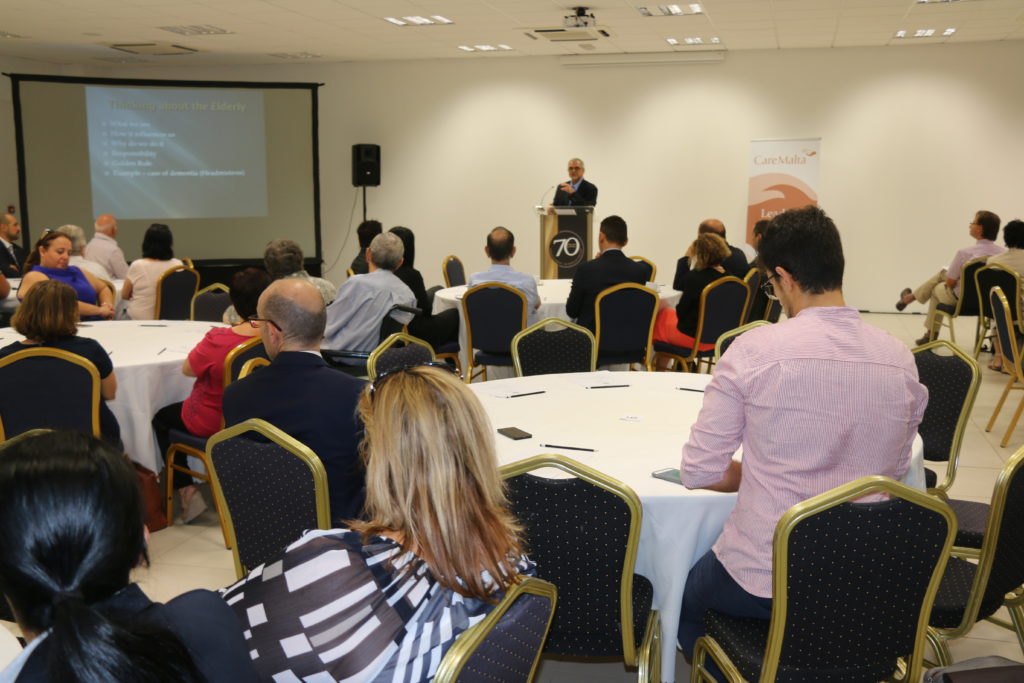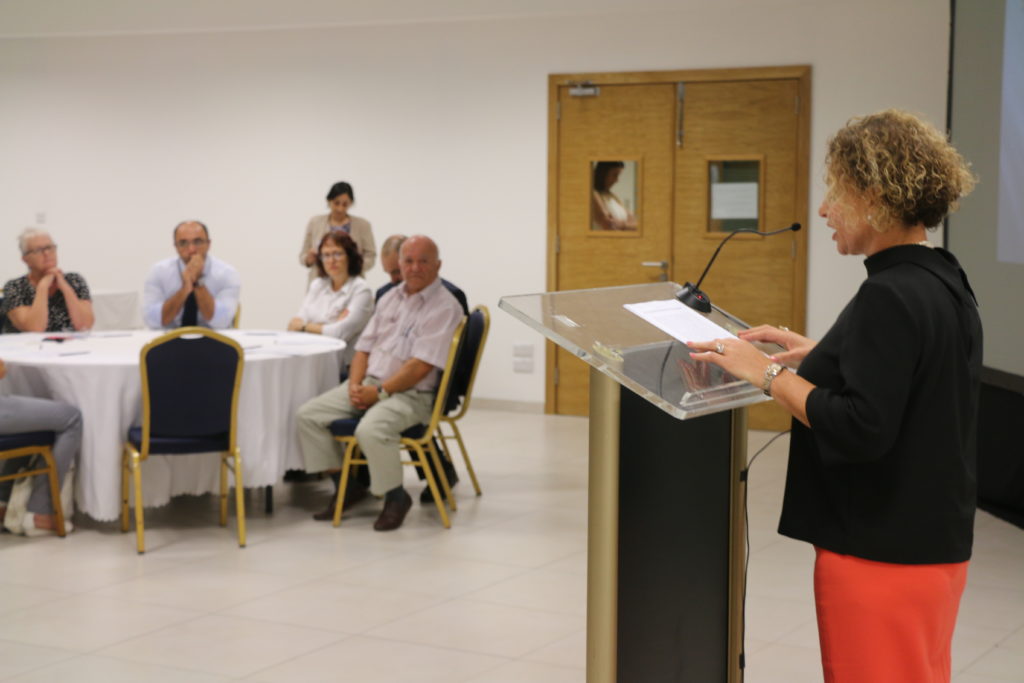
Should we be adding life to years and years to life of older persons? Do we need to keep treating certain conditions such such cholestorol beyond certain age at the risk of over loading the older person with medication? Do we need to speak to older persons, particularly those in care homes as if they are children? Do we need to make them do things they do not wish to do such as go out when they do not feel like it? Why should a person die still hooked to a drip when according to experts at a certain stage this becomes useless?
These were some of the poignant questions asked during a seminar organised by the Caremalta Academy within the Caremalta Group as part of the company’s events to mark the International Day dedicated to older persons celebrated on October 1st. The seminar facilitated by PBS journalist Mario Xuereb, focused on the future of long-term care of the elderly. The seminar was attended by various stakeholders including doctors, nurses, public officers, mangers of old people’s homes, elderly persons and academics.
In Malta, last year, the launch of the national minimum standards brought about a new concept of a standardised standard following years of operating outside a formal regulatory framework. The aim of the seminar was to examine whether we should look beyond adhering to standards, policies and regulations and start to really get to know the persons we should be caring for, to see what their real needs and wants are. By doing this we would then providing person-centred care older persons deserve.
Caremalta’s CEO, Natalie Briffa Farrugia set the tone at the opening of the seminar by asking a number of questions aimed at instigating the discussion on this very relevant topic. Mrs Briffa Farrugia asked whether caregivers could possibly move away from the institutionalization mentality. Such a mentality may have cropped up for a number of reasons particularly the growing number of older persons who are living into their late 80s and 90s and consequently would need admission to a home or hospital. She explained that the seminar should serve as an opportunity for all those involved in the care for the elderly sector to reflect whether the current practices are elderly-friendly and respectful to the full dignity of the older person. She asked: what about involving them and seeing it from their point of view and seeing their experience as the journey we can travel together.
The keynote speaker at the seminar was Prof Pierre Mallia who touched upon a number of ethical issues related to old age and the care of older people. He asked whether whether the human being is being assisted to live beyond the natural years with consequences such as he growing risk of treating the older person as a number rather than a human being.
Prof. Mallia also touched upon the issue of the dignity of the older person asking whether elderly persons are most often treated and spoken to as if they were children. Here he mentioned how vulnerable older persons are sometimes shouted at and made to do things like washing when in fact they do not feel like it that moment in time. It often happens, he reiterated, that caregivers and relatives end up taking decisions for them rather having them participating in the process. Prof Mallia suggested that ideally the older person should take certain decisions that would affect them later in life when they are still relatively healthy.
Professor Mallia also said that allowing one to die in dignity is not killing. At a certain point it would be more beneficial to the older person not to keep receiving treatment but gets the tender, love and care that becomes so necessary at that point of one’s life.
Professor Mallia asked whether it is high time to think about extending insurance cover to community care which could encourage and facilitate the older person’s stay at home even at a certain stage. However, he did ask whether certain community services that have been in place for almost 25 years are still working. Professor Mallia said that loneliness may be a sad reality and for this reason professionals who deal with elderly persons would so do well to go the extra mile to spend some time talking to them despite their busy schedules.

Professor Mallia’s speech undoubtedly raised a lot of comments when the discussion was opened to the floor.
Professor Mallia’s speech undoubtedly raised a lot of comments when the discussion was opened to the floor. Participants spoke about the need to have trained and qualified staff providing the service to older persons particularly in care homes. Other participants spoke about the importance of being more flexible when dealing with elderly residents in Care Homes.
One of the participants with years of experience working in this sector remarked that we should not adopt a one-size-fits-all attitude but opt for a person-centred care which is needed so much in a care setting if we really are to get to know the person and provide him or her with the service he/she needs.
Another elderly participant spoke about the need for the state to provide night carers since a number of elderly do not mind staying alone at home during the day, once the right community services are provided, but having to sleep alone at night is an issue for them. Another participant remarked that making the transition for your own home to a care home may be difficult and a gradual transition, whereby an elderly person would be able to go to a care home to spend the night or to eat only, should be considered. This makes it important, another participant remarked, to have homes in as many localities as possible.
Almost 700 million are now over the age of 60 and by 2050, this figure will reach 2 billion people, over 20 per cent of the world’s current population [1]. Malta is no exception. Figures based on the 2011 Census[2] indicate that at the end of 2013, 25 per cent of the total population, or 105,068 persons, were aged 60-plus. Population projections indicate a continuously ageing population where Malta’s population is expected to reach 429,000
[1] Formosa, M. and Scerri, C. (2015). Population Ageing in Malta: Multidisciplinary Perspectives. Malta: Malta University Press.
[2] National Statistics Office. (2011). Demographic Review 2010. Malta: National Statistics Office.


